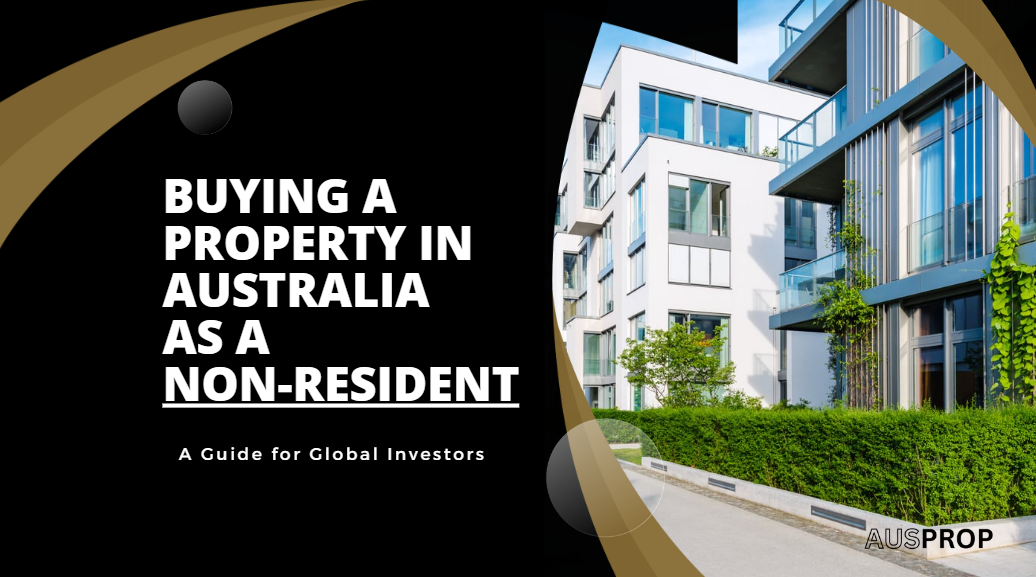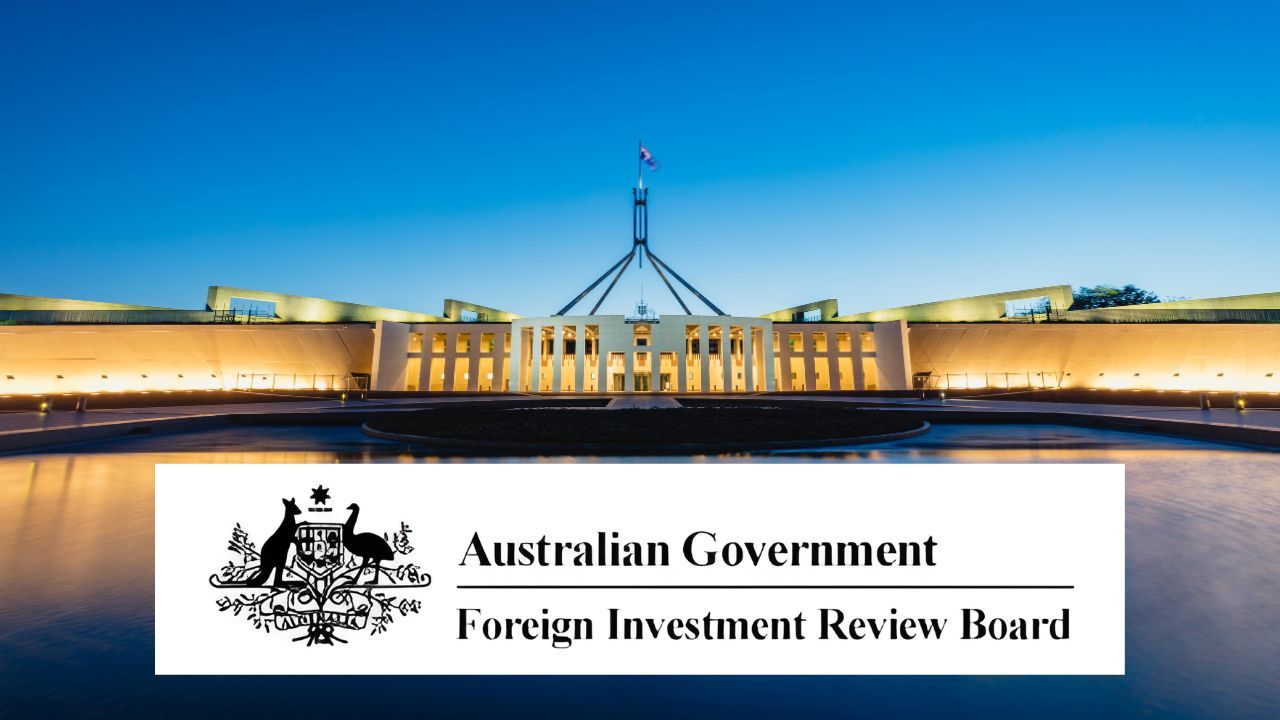Can Foreigners Buy Australian Property? Here's How
Josh Tay
Last Updated on 08-Aug-2025

Can I buy a property in Australia even if I am not a resident?
Yes, it is possible for a non-resident to buy a property in Australia, but you are subject to different rules and regulations compared to residents. In order to purchase, you must first be granted permission to do so by the Foreign Investment Review Board.
Non-residents can purchase property as a foreign entity or through an Australian resident trustee, and the rules regarding taxes, permit requirements, and owning and selling property are in compliance with Australian laws.
Australia is an attractive destination for non-residents seeking a lucrative investment opportunity. However, navigating the complex regulations and approval process can be daunting.
In this article, we will demystify the process and provide valuable insights to help you make an informed decision.

Foreign Investment Review Board (FIRB) Regulations and Approval Process
The Foreign Investment Review Board (FIRB) is the authority responsible for regulating non-resident property purchases in Australia.
FIRB approval is required for various acquisitions by foreign persons. These include "substantial interest":
- -the acquisition of a 20 percent or more direct or
- -indirect interest in an Australian entity or
- -business valued at more than US$330 million.
What is a foreign person under FIRB?
- an individual not ordinarily resident in Australia, a foreign corporation or a foreign. government holds at least 20 per cent in the limited partnership, or two or more persons each of whom is an individual not ordinarily resident in.
What are the rules for first home buyers in Australia?
- You must be an individual, (not a company or trust*) you must be over 18* you and your spouse or partner, must never have owned or co-owned residential property in Australia.
- You and your spouse or partner, must never have previously received an exemption or concession under the scheme.
Types of Properties Eligible for Purchase
The FIRB rules restrict the types of properties that non-residents can buy. Since December 2015, non-residents may only buy:
- New Buildings: Defined by the FIRB as property that has not been previously sold as a dwelling and has not been previously occupied. This includes properties that are under construction and have not been sold before.
- Vacant Land: The purchase of vacant land is approved by the FIRB subject to a property being constructed within four years of the approval date. Once construction has been completed, proof must be sent to the FIRB within 30 days.
FIRB Application Process
To apply for FIRB approval, non-residents must submit their application through the Australian Tax Office (ATO) website. The FIRB application process typically takes 30 days, and there are fees associated with the application.
Fees and Timelines for Approval
The FIRB application process involves several steps and timelines:
- Application Submission: Non-residents must submit their application through the ATO website, providing all necessary documentation and information.
- Review and Assessment: The FIRB reviews and assesses the application to ensure compliance with the regulations.
- Approval or Decline: The FIRB notifies the applicant of the outcome within 30 days.
-If approved, the applicant can proceed with the property purchase. If declined, the applicant must comply with the FIRB's conditions or seek an exemption.

Tax Implications for Non-Residents in Australia
A non-resident individual is liable to Australian income tax only on income (other than interest, royalties, and dividends, which are generally subject to withholding tax [WHT]) derived from sources in Australia, and certain statutory income that is taxable on a basis other than source (e.g. certain capital gains).
How much is non-resident withholding tax in Australia?
Australian Non-Resident Withholding Tax Rates
| Type of Payment | Non-Tax Treaty Country | Tax Treaty Country (Indicative rates - refer to DTA) |
| Unfranked Dividends | 30% | Generally 15% |
| Franked Dividends | 0% | 0% |
| Interests | 10% | Generally 10% |
| Royalties | 30% | Generally 10% |
Stamp Duty
Stamp duty is a tax levied on the transfer of property ownership.
Non-residents may be subject to higher stamp duty rates compared to Australian residents. The stamp duty rates vary between states and territories, so it is important to check the specific rates applicable in the location of your investment property.
General stamp duty rates in VIC
| Property value | Stamp duty payable |
| $0 - $25,000 | 1.4% of the value of the property |
| $25,000 - $130,000 | $350, plus 2.4% of the value above $25,000 |
| $130,000 - $960,000 | $2,870, plus 6% of the value above $130,000 |
| $960,000 - $2,000,000 | 5.5% of the value of the property |
Income Tax
Non-residents are subject to Australian income tax on income derived from Australian sources, such as rental income from an investment property. The income tax rates for non-residents are higher than those for Australian residents, with no tax-free threshold.
Non-residents pay tax at a rate of 32.5% on taxable income up to $120,000, 37% on income between $120,001 and $180,000, and 45% on income over $180,000.
How much income tax does a foreigner pay in Australia?
Foreign resident Income tax rates 2020 to 2025
| Taxable income | Tax on this income |
| 0 – $120,000 | 32.5c for each $1 |
| $120,001 – $180,000 | $39,000 plus 37c for each $1 over $120,000 |
| $180,001 and over | $61,200 plus 45c for each $1 over $180,000 |
Capital Gains Tax (CGT)
A capital gain or loss is the amount of money you make or lose on the sale of an asset.
The capital difference is how much you purchase the asset for versus how much you sell it for.
Non-residents are subject to Australian CGT on the sale of Australian assets, including investment properties. The CGT rate is the same as the non-resident income tax rate, with no tax-free threshold.
It is important to note that non-residents may be eligible for a CGT discount if they have held the asset for at least 12 months.
- If you own the asset for less than 12 months, you will have to pay 100% of the capital gain at your income tax rate.
- If you own the asset for longer than 12 months, you will pay 50% of the capital gain. Capital gains are taxed at the same rate as taxable income — i.e. if you earn $40,000 (32.5% tax bracket) per year and make a capital gain of $60,000, you will pay income tax for $100,000 (37% income tax) and your capital gains will be taxed at 37%.
Financing Options for Non-Residents in Australia
Can non-residents get loans in Australia?
Yes! Australian expats don't have to worry about eligibility for loans even while living outside of Australia. Non-residents can apply for a home loan even if they're living and working abroad.
Typically, overseas citizens can expect to borrow between 30% to 80% of the purchase price of the property as a foreign resident buying property in Australia. Some lenders may require a higher deposit around 40% for non residents.
Can I get a home loan without a deposit in Australia?
Yes, you can! Many lenders are willing to consider these grants as a deposit, which means you are essentially buying your home without having to save up for a deposit.
Banks in Australia offer up to 95% loan-to-value ratio (LVR) loans, meaning you will need at least a 5% deposit if you use the First Home Owners Grant.
Exceptions and Exemptions to the FIRB Rules
The Foreign Investment Review Board (FIRB) rules have several exceptions and exemptions that apply to specific situations. Here, we will discuss these exceptions and the specific requirements and conditions for each:
Temporary Residents Buying Property for Their Own Use
Temporary residents are allowed to buy property for their own use, but there are certain conditions and requirements:
- Residency Requirements: Temporary residents must have a valid visa and be living in Australia at the time of purchase.
- Property Type: Temporary residents can buy established dwellings for their own use, but not for investment purposes.
- Conditions: The property must be used as the temporary resident's primary place of residence, and they must not rent it out.
Foreigners Buying Commercial Property
Foreigners are allowed to buy commercial property in Australia, but there are specific requirements and conditions:
- Property Type: Foreigners can buy commercial property, such as office buildings, shopping centers, or industrial facilities.
- Conditions: The property must be used for commercial purposes, and the foreign buyer must not use it for residential purposes.
Other Exceptions
There are other exceptions to the FIRB rules, including:
- Aged Care Facilities: Foreigners can buy aged care facilities, retirement villages, or certain student accommodation, provided the interest is not above the relevant threshold.
- Time Share Schemes: Foreigners can buy time share schemes where their total entitlement to access the land is no more than the relevant threshold.
- Government Properties: Foreigners can buy properties directly from the Commonwealth, a state, a territory, or local governing body.
The FIRB rules have several exceptions and exemptions that apply to specific situations. Understanding these exceptions and the specific requirements and conditions for each is crucial for non-residents looking to buy property in Australia.
Annual Vacancy Fee: Purpose and Implications
The annual vacancy fee is a requirement for foreign property owners in Australia to ensure that their properties are rented out or occupied for at least 183 days in a year.
This fee aims to address the issue of housing affordability and encourage foreign property owners to contribute to the housing market by making their properties available for rental or sale.
Purpose
The annual vacancy fee serves several purposes:
- Encouraging Rental or Sale: By imposing a fee on unoccupied properties, the government aims to encourage foreign property owners to either rent out their properties or sell them, thereby increasing the availability of housing for Australians.
- Addressing Housing Affordability: The fee helps address the issue of housing affordability by ensuring that foreign property owners contribute to the housing market and do not leave their properties vacant.
- Increasing Revenue: The fee generates revenue for the government, which can be used to fund initiatives that support housing affordability and other social programs.
Implications of Not Meeting the Vacancy Fee Requirements
If foreign property owners fail to meet the vacancy fee requirements, they may face the following implications:
- Penalties and Fines: Failure to lodge a vacancy fee return or pay the fee can result in penalties and fines.
- Deemed Vacancy: If a property is deemed vacant, the owner may be liable for the full vacancy fee, even if they have occupied the property for part of the year.
- Loss of Investment: Failure to comply with the vacancy fee requirements can lead to the loss of investment, as the property may be deemed unoccupied and the owner may not be able to rent it out or sell it.
- Legal Consequences: Failure to comply with the vacancy fee requirements can result in legal consequences, including fines and even legal action.
The annual vacancy fee is a crucial requirement for foreign property owners in Australia to ensure that their properties are rented out or occupied. Failure to meet this requirement can result in significant penalties and fines.
It is essential for foreign property owners to understand their obligations and comply with the vacancy fee requirements to avoid any legal or financial consequences.
Case Studies and Success Stories: Unlocking the Potential of Australian Property Investment
Buying property in Australia as a non-resident can be a lucrative investment opportunity, with many successful investors achieving significant returns on their investments.
Here, I will share two case studies that highlight the potential for high returns on investment and the feasibility of the process:
Jazz Sidana: From Small Apartment to Multi-Million-Dollar Portfolio
Jazz Sidana, a migrant from India, turned a small apartment into a multi-million-dollar portfolio through strategic investments. Sidana initially purchased a small apartment in Melbourne for $250,000.
Over the next few years, he carefully managed the property, renovating it to increase its value. He then used the equity from this property to purchase another apartment, and then another, gradually building a portfolio of properties.

Lakhwinder Singh: From $60,000 to a Multi-Million-Dollar Portfolio
Lakhwinder Singh, the founder of VBand, turned a humble $60,000 into a multi-million-dollar portfolio of eight properties in Melbourne. Singh initially purchased a small apartment in Melbourne for $60,000.
He then used the equity from this property to purchase another apartment, and then another, gradually building a portfolio of properties.

Sidana and Singh's strategy was to focus on high-growth areas, such as inner-city suburbs and coastal towns, where demand for housing was high.
- They ensured that their properties were well-maintained and rented out to ensure a steady income stream. Through their careful planning and execution, they were able to grow his portfolio to a multi-million-dollar value, providing them with a significant return on his initial investment.
These two case studies demonstrate the potential for high returns on investment and the feasibility of the process for non-resident property investors in Australia.
By focusing on high-growth areas, ensuring that properties are well-maintained and rented out, and using strategic investment strategies, non-resident investors can achieve significant returns on their investments.
Key Points and Benefits of Buying a House in Australia as a Non-Resident
Buying a house in Australia as a non-resident can be a lucrative investment opportunity, offering several key benefits:
- Stable Economy and Robust Real Estate Market: Australia's economy is known for its stability, with a strong track record of consistent growth. This stability is reflected in the real estate market, which has consistently delivered strong returns over the long term.
- Diverse Range of Property Investment Opportunities: Australia offers a diverse range of property investment opportunities, from bustling urban centers to serene coastal towns. The country's major cities, such as Sydney and Melbourne, are hubs for business and commerce, offering a range of commercial and residential properties.
- Potential for Long-Term Capital Appreciation: Investing in property in Australia provides the potential for long-term capital appreciation. Property values in Australia have historically appreciated over time, providing a secure and stable investment option.
- Rental Income and High Returns on Investment: Australia's robust real estate market offers high returns on investment, making it an attractive option for investors seeking passive income. Owning a property in Australia can provide a secure and comfortable lifestyle for migration, education, own use, retirement, and high returns on investment.
Act Now and Secure Your Future in Australia
Don't let the complexity of the regulations hold you back. We are here to guide you through the process and ensure that you make the most of your investment. Don't miss out on this opportunity to secure your financial future. Contact us today to schedule a consultation and take the first step towards achieving your financial goals in Australia.

